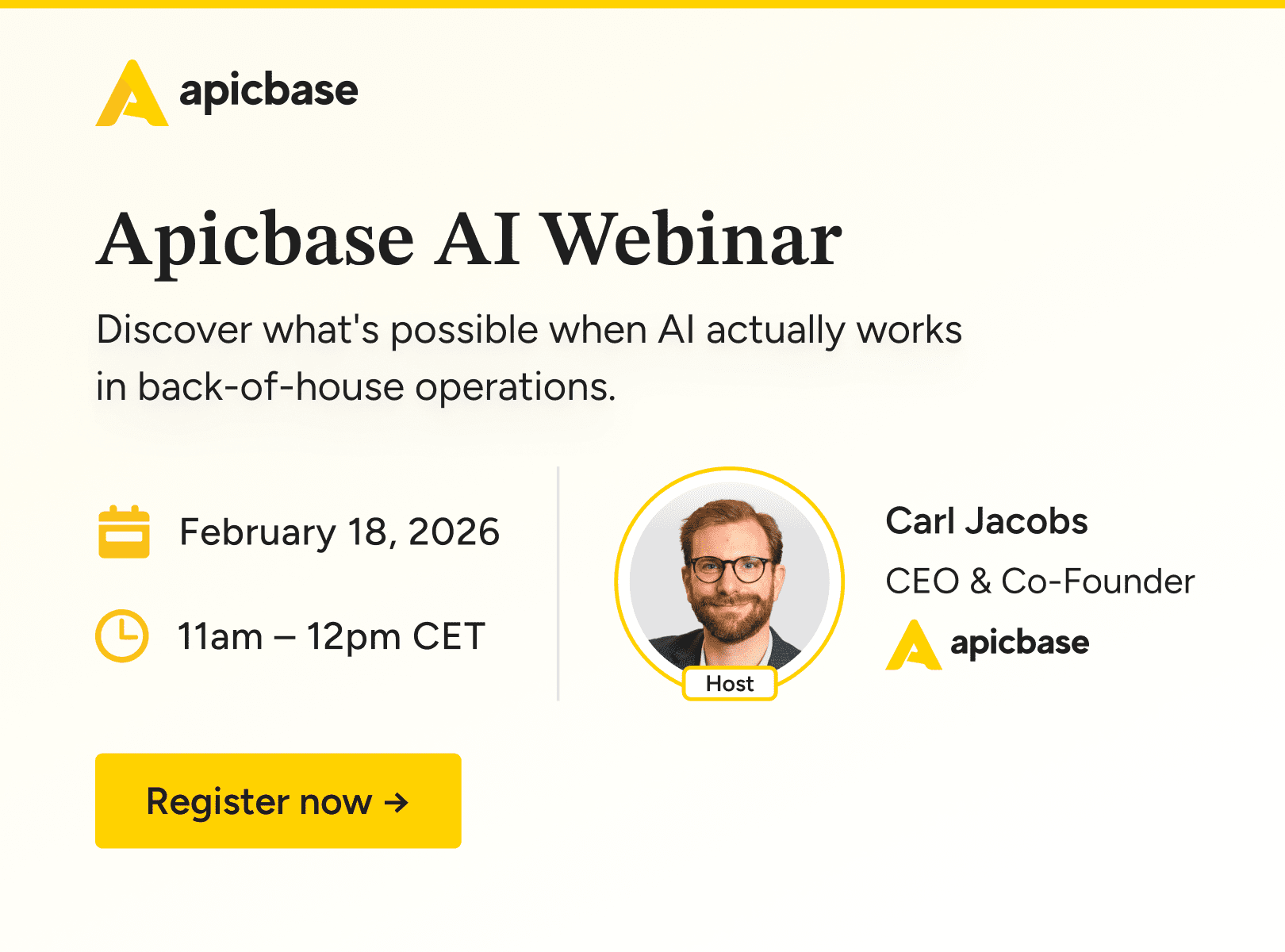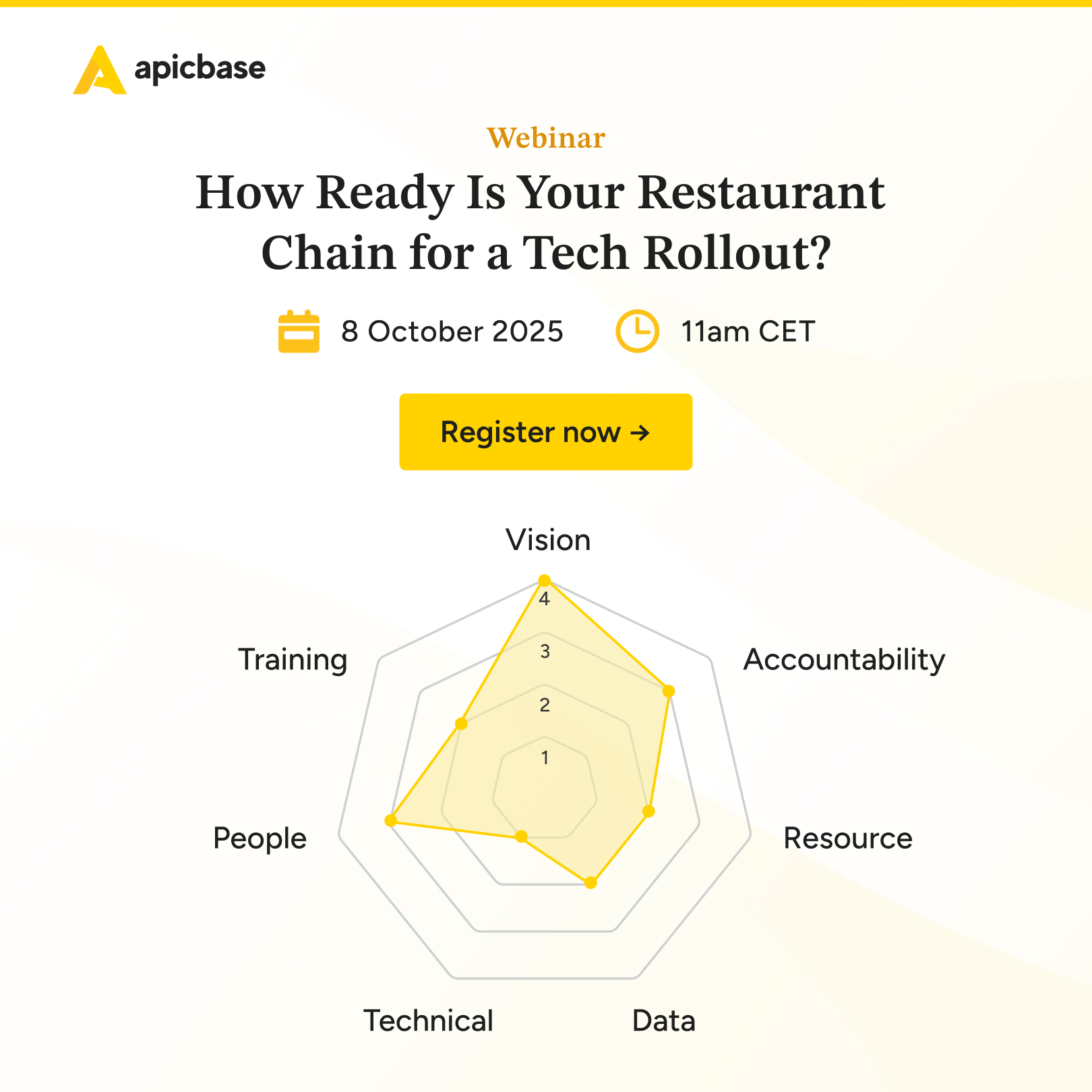APICBASE is working on the world’s most intelligent food management platform.
We have started a research project into artificial intelligence (AI) for the hospitality industry, with the support of industry partners.
APICBASE allocates a total of 780,000 euros for this research with the support of VLAIO, Flemish Agency for Innovation and Entrepreneurship.
The new AI module builds on the existing modules in the APICBASE restaurant management software. Already today, users of the platform can count on order suggestions based on stock data and desired quantities.
But we want more.
The aim is to make detailed sales forecasts based on massive amounts of internal and external data. The new AI module will indicate, for example, precisely how much spaghetti will be sold tomorrow.
The benefits are great. If you know how many portions you’ll sell, then you know exactly how much to make of each recipe and what to buy. As a result, stock and waste can be kept under control, reducing the food cost and increasing the profit margins.
The new AI module will, for example, indicate precisely how much spaghetti will be sold tomorrow.
“We make artificial intelligence available to all foodservice companies,” says Carl Jacobs, CEO of APICBASE.
Better stock management
Count stock digitally and receive status reports with order suggestions.
“We are facing a real revolution.”
Pieter Wellens, CTO of APICBASE, did ten years of research on artificial intelligence as a post-doc researcher at the world-renowned AI-Lab of the Vrije Universiteit Brussel.
Pieter Wellens understands the scope of APICBASE’s research project like no other. “We are facing a real revolution. The opportunities that AI offers the foodservice sector are enormous. Critical and time-consuming processes, such as inventory and procurement, will soon be largely automated.”
“Inventory and procurement will soon be largely automated”

Smart algorithms
APICBASE is taking the lead in AI for the hospitality industry, says Carl Jacobs: “Today, the sector focuses on ‘databasing’, collecting and organizing large amounts of data.
We go a step further.
We release smart algorithms on the databases — this way, we bring hidden insights about profitability to the surface.
The aim is to increase the business results of our customers and at the same time, reduce the workload.
New insights into purchasing policies, for example, help to make better choices. The result is that waste goes down and the margins go up.”
Great potential for higher gross profit
Pieter Wellens predicts the potential to improve the bottom line through AI is huge.
“35% of the costs of a food outlet are raw materials. 35% of this gets wasted on average. Every improvement of those percentages has a huge impact on gross profit, certainly if you know that hospitality margins rarely exceed 10%. ”
In other sectors, revenue management typically leads to a 2-5% improvement in revenues. These percentages can be added almost entirely to the bottom line [1].
[1] Rowson, Bill, Wouter van Poppel, and Sjoerd Gehrels. “Wasted millions: Revenue management in Dutch culinary restaurants.” Research in Hospitality Management 6.2 (2016): 127-133

Significant social importance
Finally, artificial intelligence in foodservice also has a significant social importance.
Every year 1.3 billion tons of food is wasted, that is one-third of the world food production. Thanks to AI, we better understand the mechanics behind food waste.
By adapting the different kitchen processes – purchasing, production, service – to this new knowledge, hospitality businesses contribute to the realization of the Sustainable Development Goals (SDG) of the United Nations.
“Thanks to AI, we better understand the mechanics behind food waste”
Take your business to the next level
Stay well ahead of the competition with food management software. Work more efficiently, get valuable insights and the tools to achieve your revenue and margin targets.


